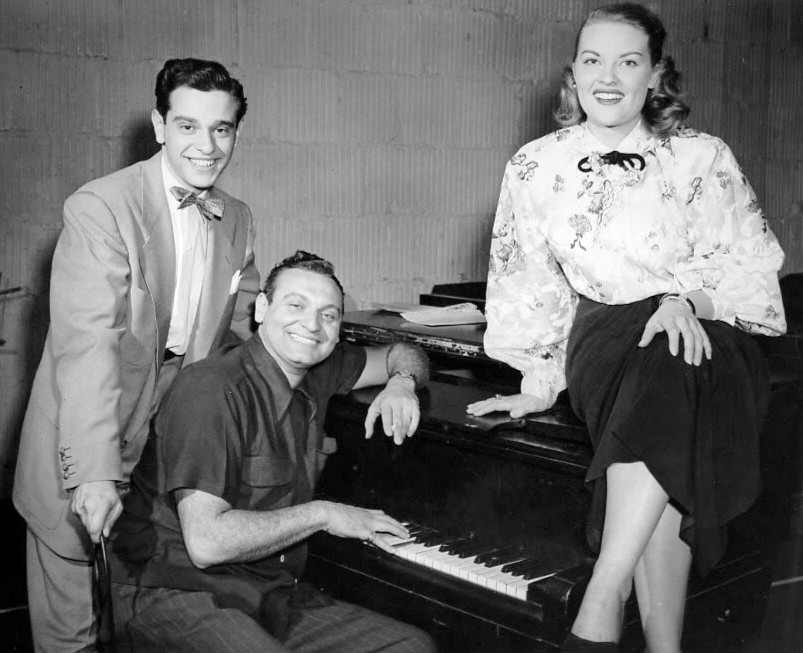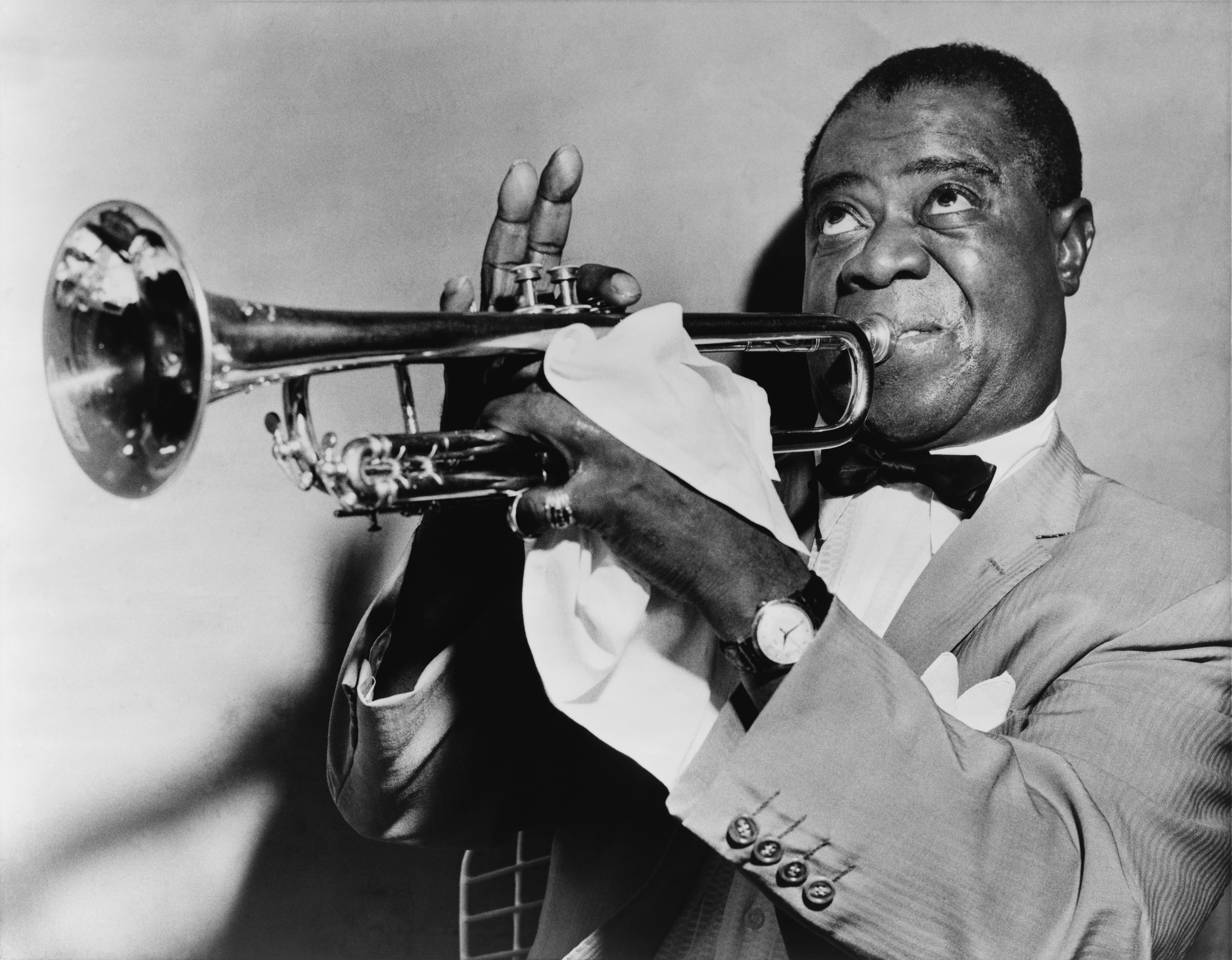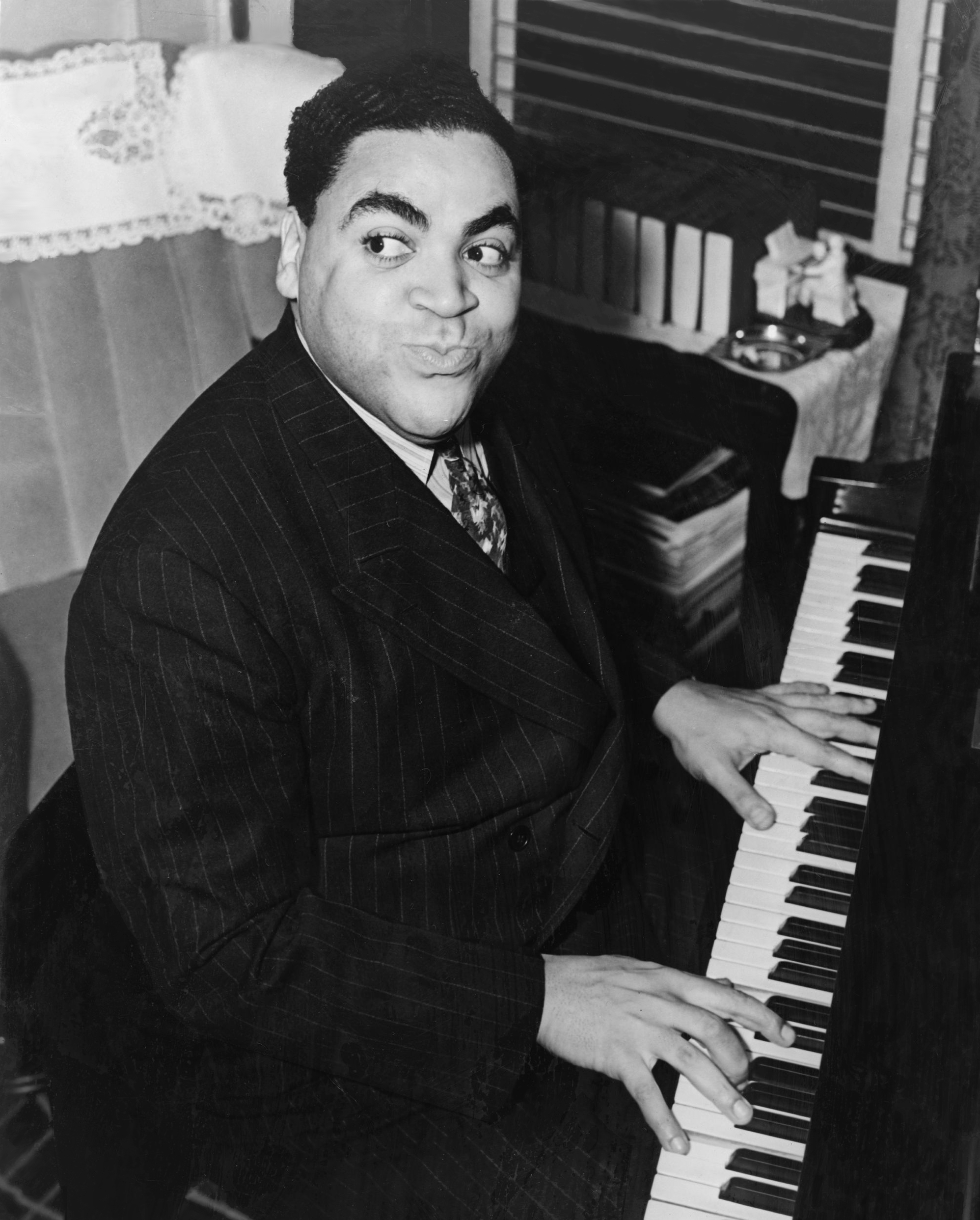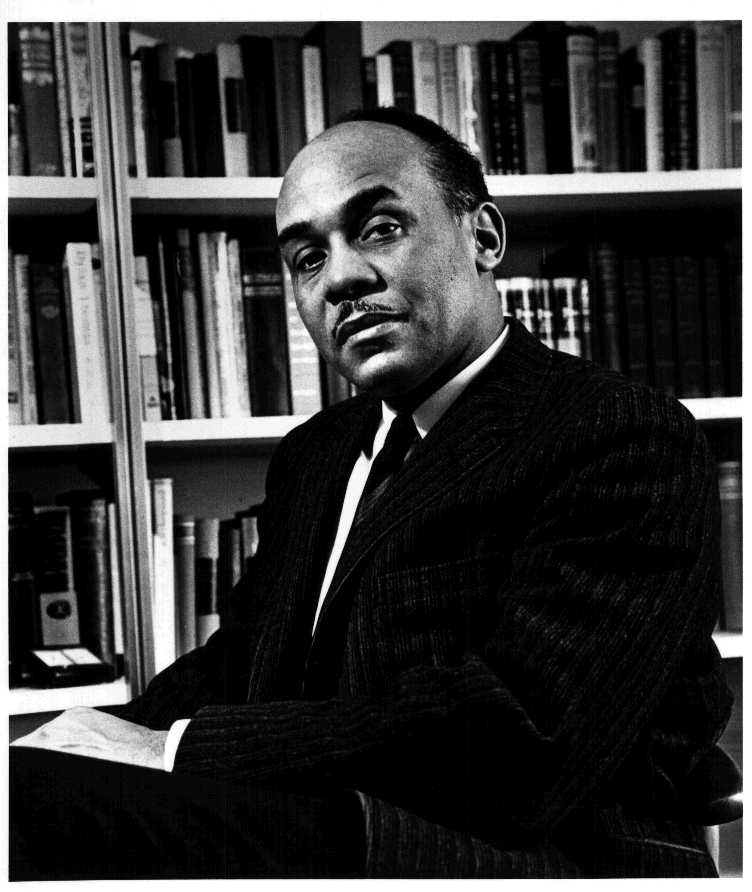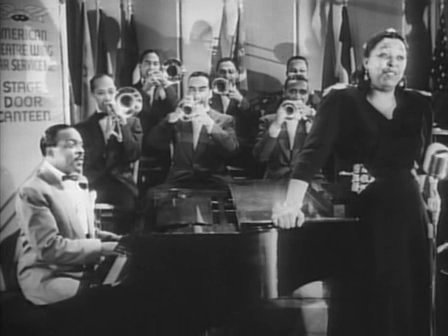|
(What Did I Do To Be So) Black And Blue
"(What Did I Do to Be So) Black and Blue" is a 1929 jazz standard composed by Fats Waller with lyrics by Harry Brooks and Andy Razaf. It was introduced in the Broadway musical ''Hot Chocolates'' (1929) by Edith Wilson. In the show, Wilson originally sang the song from a bed with white sheets, but the bed was removed after the first show due to the judgement that it was too suggestive. The show also included Waller's hit compositions " Ain't Misbehavin'" and " Honeysuckle Rose". Louis Armstrong later performed and recorded the song several times omitting the opening verse. Blues singer Ethel Waters's 1930 version of the song became a hit, and the song has been recorded by many artists since then. Frankie Laine's 1946 version was featured in the 2011 video game ''L.A. Noire'', as part of the in-game radio station, K.T.I. Radio. The song is also featured in the prologue of Ralph Ellison's novel ''Invisible Man'' (1952) as its protagonist, while hiding underground in a basement with ... [...More Info...] [...Related Items...] OR: [Wikipedia] [Google] [Baidu] |
Jazz Standard
Jazz standards are musical compositions that are an important part of the musical repertoire of jazz musicians, in that they are widely known, performed, and recorded by jazz musicians, and widely known by listeners. There is no definitive list of jazz standards, and the list of songs deemed to be standards changes over time. Songs included in major fake book publications (sheet music collections of popular tunes) and jazz reference works offer a rough guide to which songs are considered standards. Not all jazz standards were written by jazz composers. Many are originally Tin Pan Alley popular songs, Broadway show tunes or songs from Hollywood musicals – the Great American Songbook. In Europe, jazz standards and "fake books" may even include some traditional folk songs (such as in Scandinavia) or pieces of ethnic music (such as gypsy melodies) that have been played with a jazz feel by well known jazz players. A commonly played song can only be considered a jazz standard ... [...More Info...] [...Related Items...] OR: [Wikipedia] [Google] [Baidu] |
Frankie Laine
Frankie Laine (born Francesco Paolo LoVecchio; March 30, 1913 – February 6, 2007) was an American Singing, singer, songwriter, and actor whose career spanned nearly 75 years, from his first concerts in 1930 with a marathon dance company to his final performance of "That's My Desire (1931 song), That's My Desire" in 2005. Often billed as "America's Number One Song Stylist", his other nicknames include "Mr. Rhythm", "Old Leather Lungs", and "Mr. Steel Tonsils". His hits included "That's My Desire", "That Lucky Old Sun", "Mule Train", "Jezebel (Frankie Laine song), Jezebel", "High Noon (song), High Noon", "I Believe (1953 song), I Believe", "Hey Joe (1953 song), Hey Joe!", "The Kid's Last Fight", "Cool Water (song), Cool Water", "Rawhide (song), Rawhide", and "You Gave Me a Mountain". He sang well-known theme songs for many western (genre), Western film soundtracks, including ''3:10 to Yuma (1957 film), 3:10 To Yuma'', ''Gunfight at the O.K. Corral (film), Gunfight at the O.K. Co ... [...More Info...] [...Related Items...] OR: [Wikipedia] [Google] [Baidu] |
1920s Jazz Standards
Jazz standards are musical compositions that are widely known, performed and recorded by jazz artists as part of the genre's musical repertoire. This list includes compositions written in the 1920s that are considered standards by at least one major book publication or reference work. Some of the tunes listed were already well-known standards by the 1930s, while others were popularized later. The time of the most influential recordings of a song, where appropriate, is indicated on the list. A period known as the " Jazz Age" started in the United States in the 1920s. Jazz had become popular music in the country, although older generations considered the music immoral and threatening to old cultural values. Dances such as the Charleston and the Black Bottom were very popular during the period, and jazz bands typically consisted of seven to twelve musicians. Important orchestras in New York were led by Fletcher Henderson, Paul Whiteman and Duke Ellington. Many New Orleans jazzm ... [...More Info...] [...Related Items...] OR: [Wikipedia] [Google] [Baidu] |
1929 Songs
Nineteen or 19 may refer to: * 19 (number), the natural number following 18 and preceding 20 * one of the years 19 BC, AD 19, 1919, 2019 Films * ''19'' (film), a 2001 Japanese film * ''Nineteen'' (film), a 1987 science fiction film Music * 19 (band), a Japanese pop music duo Albums * ''19'' (Adele album), 2008 * ''19'', a 2003 album by Alsou * ''19'', a 2006 album by Evan Yo * ''19'', a 2018 album by MHD * ''19'', one half of the double album ''63/19'' by Kool A.D. * ''Number Nineteen'', a 1971 album by American jazz pianist Mal Waldron * ''XIX'' (EP), a 2019 EP by 1the9 Songs * "19" (song), a 1985 song by British musician Paul Hardcastle. * "Nineteen", a song by Bad4Good from the 1992 album ''Refugee'' * "Nineteen", a song by Karma to Burn from the 2001 album ''Almost Heathen''. * "Nineteen" (song), a 2007 song by American singer Billy Ray Cyrus. * "Nineteen", a song by Tegan and Sara from the 2007 album '' The Con''. * "XIX" (song), a 2014 song by Slipknot. ... [...More Info...] [...Related Items...] OR: [Wikipedia] [Google] [Baidu] |
List Of 1920s Jazz Standards
Jazz standards are musical compositions that are widely known, performed and recorded by jazz artists as part of the genre's musical repertoire. This list includes compositions written in the 1920s that are considered standards by at least one major book publication or reference work. Some of the tunes listed were already well-known standards by the 1930s, while others were popularized later. The time of the most influential recordings of a song, where appropriate, is indicated on the list. A period known as the " Jazz Age" started in the United States in the 1920s. Jazz had become popular music in the country, although older generations considered the music immoral and threatening to old cultural values. Dances such as the Charleston and the Black Bottom were very popular during the period, and jazz bands typically consisted of seven to twelve musicians. Important orchestras in New York were led by Fletcher Henderson, Paul Whiteman and Duke Ellington. Many New Orleans jazzme ... [...More Info...] [...Related Items...] OR: [Wikipedia] [Google] [Baidu] |
RCA Victor
RCA Records is an American record label currently owned by Sony Music Entertainment, a subsidiary of Sony Corporation of America. It is one of Sony Music's four flagship labels, alongside RCA's former long-time rival Columbia Records; also Arista Records, and Epic Records. The label has released multiple genres of music, including pop, classical, rock, hip hop, afrobeat, electronic, R&B, blues, jazz, and country. Its name is derived from the initials of its defunct parent company, the Radio Corporation of America (RCA). RCA Records was fully acquired by Bertelsmann in 1987, making it a part of Bertelsmann Music Group (BMG) and became a part of Sony BMG Music Entertainment after the 2004 merger of BMG and Sony; it was acquired by the latter in 2008, after the dissolution of Sony/BMG and the restructuring of Sony Music. RCA Records is the corporate successor of the Victor Talking Machine Company, founded in 1901, making it the second-oldest record label in American history, af ... [...More Info...] [...Related Items...] OR: [Wikipedia] [Google] [Baidu] |
Luther Henderson
Luther Henderson (March 14, 1919 – July 29, 2003) was an American arranger, composer, orchestrator, and pianist best known for his contributions to Broadway musicals. Early life and career Born in Kansas City, Missouri, Henderson relocated to the Sugar Hill section of Harlem at the age of four. Following a short stint studying mathematics at the City College of New York, he enrolled at the Juilliard School of Music, where he received a bachelor of science degree in 1942. Drafted into the Navy during World War II, Henderson became an arranger for the Navy band stationed at the Naval Station Great Lakes, prior to becoming the staff orchestrator for The U. S. Navy School of Music in Washington, D.C. from 1944 to 1946. Following the war, Henderson began a long professional association with a number of musical notables of the era, including Duke Ellington, Lena Horne, Jule Styne, and Richard Rodgers. Notably, Henderson maintained a lengthy pre-professional relationship wi ... [...More Info...] [...Related Items...] OR: [Wikipedia] [Google] [Baidu] |
Ain't Misbehavin' (musical)
''Ain't Misbehavin is a musical revue with a book by Murray Horwitz and Richard Maltby Jr., and music by various composers and lyricists as arranged and orchestrated by Luther Henderson. It is named after the song by Fats Waller (with Harry Brooks and Andy Razaf), " Ain't Misbehavin'". The musical is a tribute to the music of Fats Waller. It was a time when Manhattan nightclubs such as the Cotton Club and the Savoy Ballroom were the playgrounds of high society and Lenox Avenue dives were filled with piano players banging out the new beat known as swing. Five performers present an evening of rowdy, raunchy, and humorous songs that encapsulate the various moods of the era and reflect Waller's view of life as a journey meant for pleasure and play. Productions ''Ain't Misbehavin'' opened in the Manhattan Theatre Club's East 73rd Street cabaret on February 8, 1978. The cast included Irene Cara, Nell Carter, André DeShields, Armelia McQueen, and Ken Page and was staged by Arthur ... [...More Info...] [...Related Items...] OR: [Wikipedia] [Google] [Baidu] |
Revue
A revue is a type of multi-act popular theatrical entertainment that combines music, dance, and sketches. The revue has its roots in 19th century popular entertainment and melodrama but grew into a substantial cultural presence of its own during its golden years from 1916 to 1932. Though most famous for their visual spectacle, revues frequently satirized contemporary figures, news or literature. Similar to the related subforms of operetta and musical theatre, the revue art form brings together music, dance and sketches to create a compelling show. In contrast to these, however, revue does not have an overarching storyline. Rather, a general theme serves as the motto for a loosely-related series of acts that alternate between solo performances and dance ensembles. Owing to high ticket prices, ribald publicity campaigns and the occasional use of prurient material, the revue was typically patronized by audience members who earned more and felt even less restricted by middle-class ... [...More Info...] [...Related Items...] OR: [Wikipedia] [Google] [Baidu] |
Invisible Man
''Invisible Man'' is a novel by Ralph Ellison, published by Random House in 1952. It addresses many of the social and intellectual issues faced by African Americans in the early twentieth century, including black nationalism, the relationship between black identity and Marxism, and the reformist racial policies of Booker T. Washington, as well as issues of individuality and personal identity. ''Invisible Man'' won the U.S. National Book Award for Fiction in 1953, making Ellison the first African American writer to win the award. In 1998, the Modern Library ranked ''Invisible Man'' 19th on its list of the 100 best English-language novels of the 20th century. ''Time'' magazine included the novel in its 100 Best English-language Novels from 1923 to 2005 list, calling it "the quintessential American picaresque of the 20th century," rather than a "race novel, or even a ''bildungsroman''." Malcolm Bradbury and Richard Ruland recognize an existential vision with a "Kafka-like absurdi ... [...More Info...] [...Related Items...] OR: [Wikipedia] [Google] [Baidu] |
Ralph Ellison
Ralph Waldo Ellison (March 1, 1913 – April 16, 1994) was an American writer, literary critic, and scholar best known for his novel ''Invisible Man'', which won the National Book Award in 1953. He also wrote ''Shadow and Act'' (1964), a collection of political, social, and critical essays, and ''Going to the Territory'' (1986). ''The New York Times'' dubbed him "among the gods of America's literary Parnassus." A posthumous novel, ''Juneteenth'', was published after being assembled from voluminous notes he left upon his death. Early life Ralph Waldo Ellison, named after Ralph Waldo Emerson, was born at 407 NE 1st Street in Oklahoma City, Oklahoma, to Lewis Alfred Ellison and Ida Millsap, on March 1, 1913. Oklahoma City's 407 East First Street buzzed with excitement as Ida Ellison, whom close friends called “Brownie,” neared term in early 1913. She and her husband Lewis lived in an apartment in a large rooming house owned by J. D. Randolph and his family. He was the second of ... [...More Info...] [...Related Items...] OR: [Wikipedia] [Google] [Baidu] |
Ethel Waters
Ethel Waters (October 31, 1896 – September 1, 1977) was an American singer and actress. Waters frequently performed jazz, swing, and pop music on the Broadway stage and in concerts. She began her career in the 1920s singing blues. Her notable recordings include "Dinah", " Stormy Weather", "Taking a Chance on Love", "Heat Wave", "Supper Time", " Am I Blue?", " Cabin in the Sky", "I'm Coming Virginia", and her version of "His Eye Is on the Sparrow". Waters was the second African American to be nominated for an Academy Award, the first African American to star on her own television show, and the first African-American woman to be nominated for a Primetime Emmy Award. Early life Waters was born in Chester, Pennsylvania on October 31, 1896 (some sources incorrectly state her birth year as 1900) as a result of the rape of her teenaged African-American mother, Louise Anderson (1881–1962), by 17 year old John Wesley (or Wesley John) Waters (1878–1901), a pianist and family acq ... [...More Info...] [...Related Items...] OR: [Wikipedia] [Google] [Baidu] |
